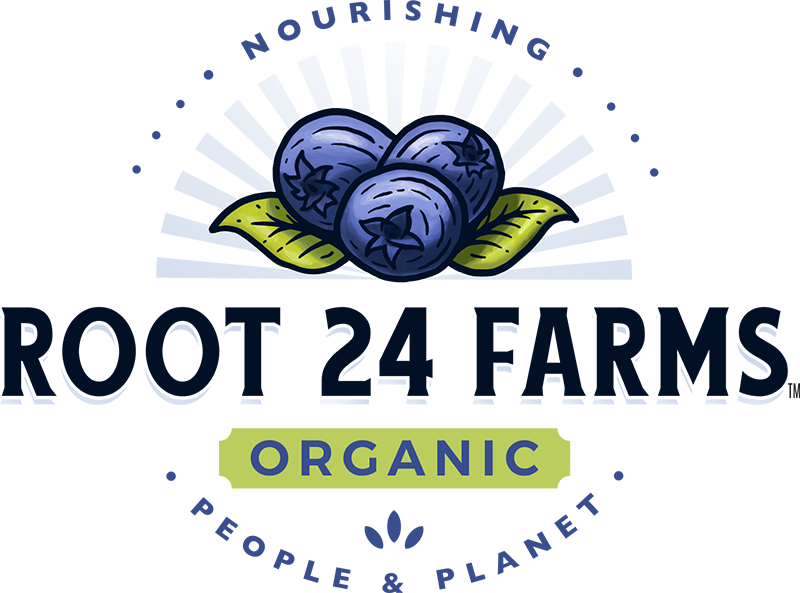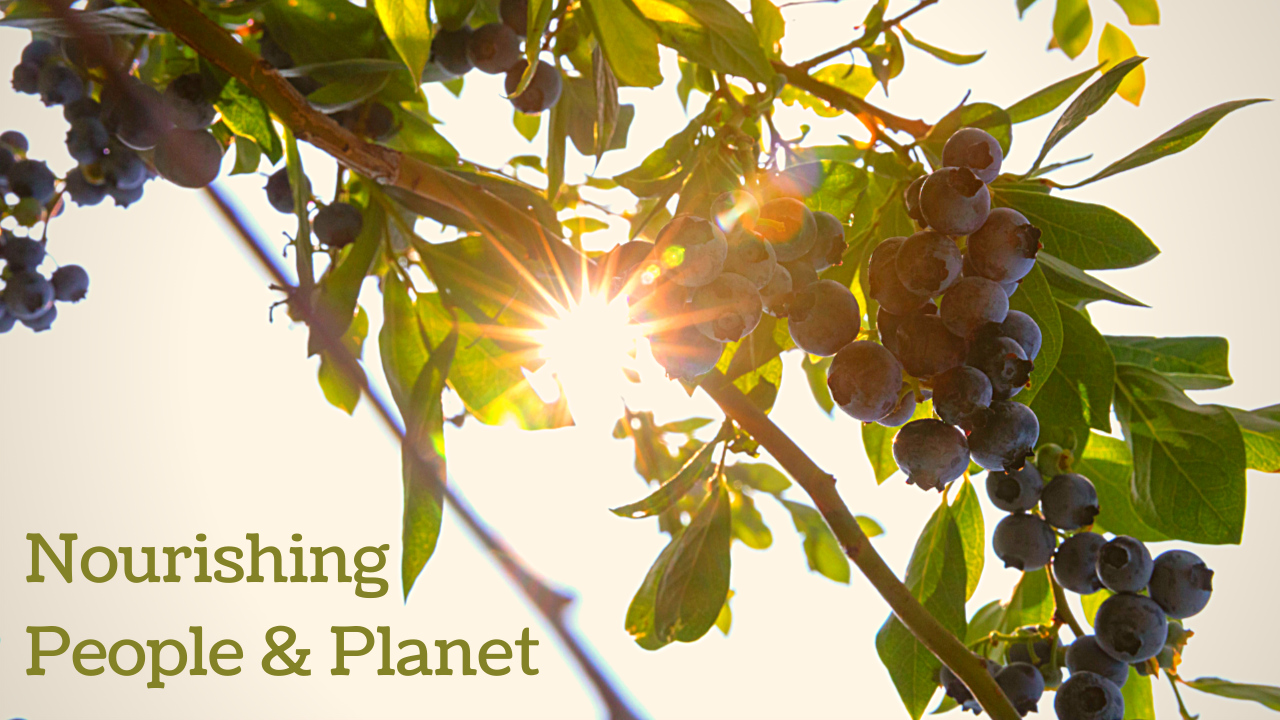Earth Day — April 22 — might be thought of as the organic holiday: a day we pause to think about how our actions as humans impact the health of the planet and our own health. Organic is an important piece of the solution to increasing our positive impacts in this precious world. There’s a lot to say about this important connection, and the hope we take from it. So for us, the entire month of April is Earth Month.

Organic is rooted in protecting our precious planet
Think about organic farming as a wellness approach to environmental health: our farmers have to nourish healthy ecosystems so that we don't need the strong agricultural chemicals used on most conventional farms.

We start with a focus on health
In order to maintain healthy ecosystems, it's not enough to simply avoid the use of harsh chemicals. We have to nourish the natural ecosystems around which we farm.

Protecting pollinators
Organic farming provides multiple benefits for pollinators, including keeping them safe from harmful pesticides and providing a safe food source. We are in the process of working toward our Bee Better certification with the Xerxes Society.

Fighting climate change
In addition to producing delicious crops, healthy organic soils fight climate change by taking CO2 out of the atmosphere and locking it into the top three feet of soil at a much greater rate than conventionally farmed soils. No-till perennial crops, like blueberries hold on to even more CO2.

Food is a resource
Food loss and waste account for around 8.2% of the total human-made greenhouse gas emissions. Not only the food itself, but every thing we put into growing that food.

20 million Americans participated.
Initiated by Senator Gaylord Nelson on April 22, 1970. 20 million Americans were inspired to participate in massive coast-to-coast rallies in cities, towns, and communities. That same year, three landmark environmental laws were passed by the US Congress: The Clean Water Act, The Clean Air Act, and the Endangered Species Act.

The amount of organic food we buy is growing.
If you buy a lot of organic, you might think that a much larger percentage of food in the US is organic. 5.8% is the number, according to the Organic Trade Association. Now that's grown a lot over the last 20 years, since the launching of the USDA's National Organic Program. And the percentage is much higher in fruits and vegetables (15%) and dairy (8%).

More organic farm land, please!
With 5.8% of our food being organic, still less than 1% of all farm land in the U.S. is organic. Does that surprise you? U.S. producers dedicated approximately 5.4 million acres of farmland—3.1 million acres of cropland and 2.3 million acres of rangeland/pasture—to organic production systems in 2011, with some certified operations and cropland in every State. California continues to lead in certified organic cropland, with over 405,000 acres, nearly half used for fruit/vegetable production. Other top States for certified organic cropland include Oregon, Montana, New York, and Wisconsin. Nearly every State also had some certified organic rangeland/pasture in 2011. While the adoption rate remains high, the overall adoption level is still low—only about 0.8 percent of all U.S. cropland and 0.5 percent of all U.S. pasture was certified organic in 2011. Obstacles to adoption by farmers include high managerial costs/risks of shifting to a new way of farming, limited awareness of organic farming systems, lack of marketing/infrastructure, and inability to capture marketing economies. U.S. producers embrace organic farming for many reasons—to lower input costs, conserve nonrenewable resources, capture high-value markets, boost farm income, among others.

Nope. No GMOS in organic.
Organic certification means no GMOs. Organic regulations explicitly prohibit the use of any genetically engineered seeds or materials on our farms or in our processing. Why is this relevant to Earth Month, you ask? According to a recent study in the journal Foods, the planting of GMO crops has resulted in a doubling of the use of weed killer sprays, largely because weeds have been developing resistance. And that all leads to imbalances in our ecosystems -- the opposite of our goals in organic farming.

Water conservation
Organic farmers focus on building soil organic matter -- it's what makes for a vibrant soil microbiome. Because our rich soils retain water and prevent runoff, we can be judicious with water usage. So we precisely meter water for our blueberries, delivering just what they need depending on the time of year and the weather conditions.

Being Salmon Safe Certified Also Matters
Salmon are an important part of the cultural, economic and natural history of the Pacific Northwest, and a pivotal link in the region’s ecosystem. As organic farmers, we’re constantly thinking about caretaking our land for the long term – for us and the delicious organic blueberries we’re growing now, but also for our children and their children and future generations. As mindful stewards of the land, we can play a key role in helping restore native salmon fisheries and in maintaining healthy watersheds. This is why we have chosen to be Salmon Safe Certified, in addition to being Certified Organic.

What on Earth is a "foodprint?"
Whether you choose your food carefully based on its environmental impact or don't think that much about it, you might be interested in taking this very simple quiz from the New York Times that will give you an idea of whether (and how) your food choices contribute to climate change.

